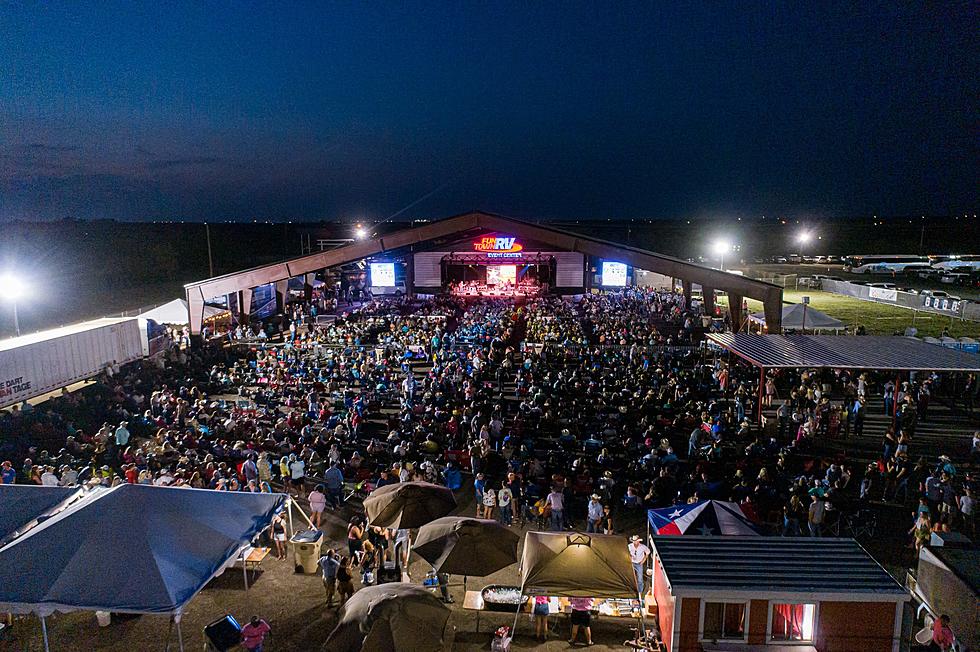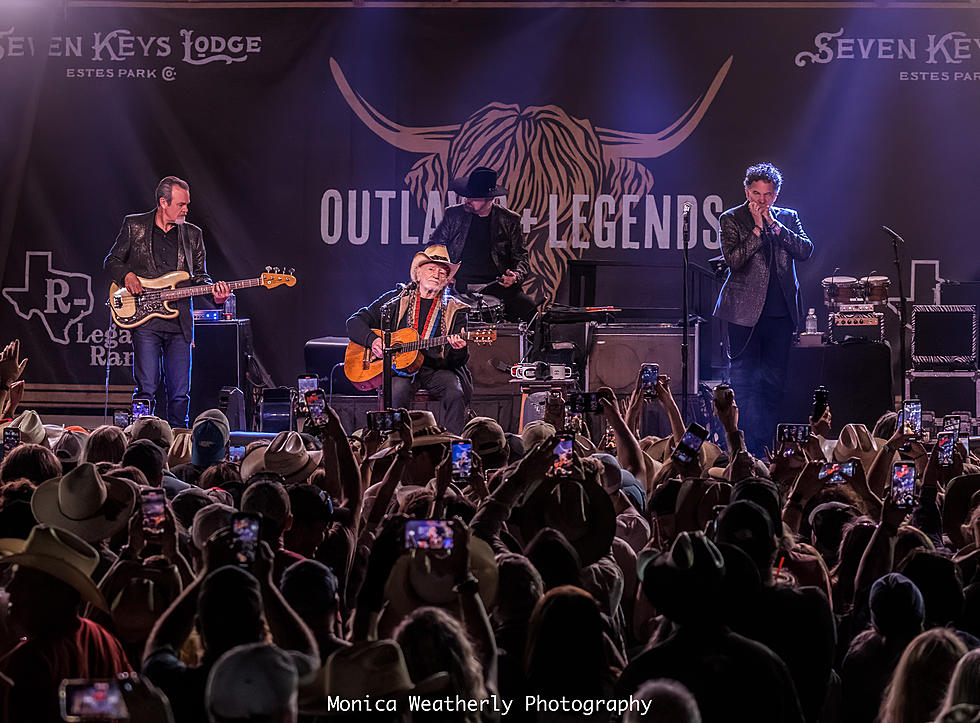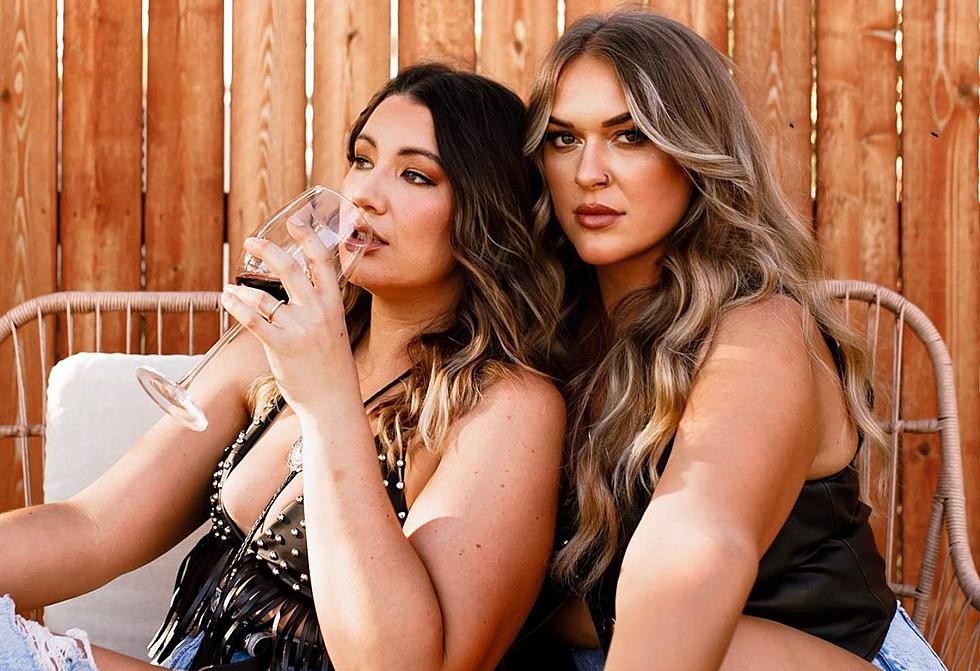
Interview: Ruston Kelly Fulfills His Vision With ‘Dying Star’
As 2015 turned into 2016, Ruston Kelly was in a dark place. Grappling with addiction, he overdosed -- and, he says, "luckily, came back around." And then, from somewhere inside him, came an idea.
To The Boot, Kelly recalls sitting on his porch the day after his overdose, focusing on nothing in particular, when the album name Dying Star and and its final song, "Brightly Burst Into the Air," just ... came to him.
"It was as if I had already heard this record before," Kelly explains, "and I just needed to catch up to it and make it."
Nearly three years later, he's caught up to it. On Friday (Sept. 7), Kelly released Dying Star, his debut full-length album with Rounder Records, his label home as of February.
"This is the happiest I've ever been with a project because this is exactly what I heard in my head that day," Kelly says. "I wasn't sure if those things were possible at the time, and now they have been proven possible, and that probably gives me even more joy."
The gorgeous, 14-song project involved a bevy of Kelly's loved ones, including his wife Kacey Musgraves, songwriter and friend Natalie Hemby and Kelly's father and sister. "There's not one person on this album that I'm not tight with," Kelly says, adding that he's especially grateful for getting to involve his dad, pedal steel player Tim Kelly, in the process.
"It's something that I know I'm going to look back on many, many years from now and be so thankful that it was such a golden, wonderful, special time in my life," Kelly reflects. Both recording and touring with his father (Tim Kelly also plays in his son's band) has strengthened their relationship and been a chance to make up for lost time -- not necessarily from childhood, when the younger Kelly lived away from his family while pursuing a career as a professional figure skater, but from when Kelly wasn't sober.
"I was so distant. I didn't want to be a part of my family, 'cause I didn't want anybody to know how low I'd actually gone," Kelly admits, "and I was embarrassed and I was ashamed, and it took me a minute to realize that [my family was] the key that was gonna help me get myself back together."
Producer Jarrad K and Kelly go back a few years as well. Kelly says the two "really hit it off" around the time he first had the idea for Dying Star and have developed a close friendship in addition to their productive creative partnership. The producer "bring[s] out that sense of irreverence I have in life," Kelly notes.
"[Our partnership] came out of this mutual respect and a feeling of being, like, synchronous together when it came to things creative ... It just seemed to be this multiplication factor between us," he adds. "This record's special in part because it just seemed like we just continued to catch fire together, and it was very quick and very simple."
Kelly and company recorded Dying Star at Sonic Ranch in El Paso, Texas. "As soon as we set foot on the property, I was like, 'Yeah, we're doing it here,'" Kelly recalls. "It was just dusty, it was lonesome -- it felt like a good place to have a beginning."
Kelly often writes stream-of-consciousness style; the true-to-life "Faceplant" had "like, 12 verses" originally, for example. "Brightly Burst Into the Sky," meanwhile, was only a chorus when Kelly stepped into the studio to record it; he freestyled the rest on the spot, and what concludes the album is the first take.
"This is the happiest I've ever been with a project because this is exactly what I heard in my head that day." -- Ruston Kelly
"It gives you your first instinct and impulse," Kelly explains of his writing style, "and if you believe that you're good enough to pull that out of yourself and you don't really have any inhibitions in doing that, then you're gonna achieve that."
Naturally, Kelly experiences the self-doubt and second-guessing that comes along with putting something out into the world for other people to consume ("What person who lives in this town and works within this industry doesn't feel that?" he says). However, he's found that sobriety makes him believe in his work a little more.
"I knew that songs existed in me in a really young age," Kelly says. "It's actually better to express yourself cleanly and soberly because you have clear eyes with what your intent was [for the song]."
Kelly's used to creating from a place of melancholy -- homesickness led him to begin writing; addiction inspired him, too -- but he's not worried about losing his sense of creativity now that he's in a happier spot. "There's always this thought that artists make better work when they're sad, and I completely disagree with that," he says.
"It's easy to be sad, it's easy to have self pity, it's easy to take a few shots and wonder how sad you are and then emote something. Creativity and sadness go together so well," Kelly adds, "but also, creativity and a belief in yourself and the things around you [do too], and also still being able to expose the cracks and scenarios that aren't necessarily yours is also the duty of a songwriter."
Who Is Ruston Kelly? 5 Things You Need to Know
More From 92.5 The Ranch










